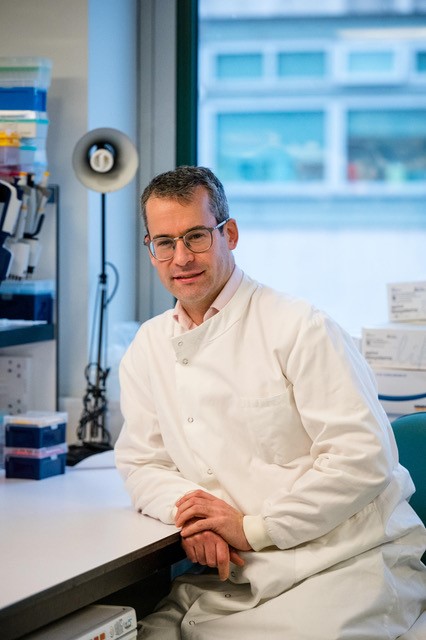Bowel cancer hope from simple vitamin treatment
An Edinburgh surgeon has won a major prize for his work on the role of a simple vitamin in helping to prevent bowel cancer and improve survival in those with the disease.
The Scottish Cancer Foundation has awarded its annual £10,000 prize to consultant surgeon and research scientist Peter Vaughan-Shaw, in a competition designed to encourage and recognise the work of early career researchers across Scotland.
Mr Vaughan-Shaw has spent the last decade investigating the role of vitamin D in bowel cancer alongside Professor Malcolm Dunlop at the University of Edinburgh. Studies from their laboratory support a link between low levels of vitamin D in the blood and higher bowel cancer risk or mortality. Vitamin D is made in the body as a result of direct sunlight on the skin plus various dietary sources but most of the population of Scotland have low levels due to lack of exposure to sunlight and diets deficient in the vitamin. Rates of bowel cancer are more than 20% higher in Scotland than the rest of the UK.
There is growing evidence that providing vitamin D supplementation could be used alongside current treatments in this particular cancer and improve survival. Mr Vaughan-Shaw’s early work involved experiments at a genetic level using cancer cells and human bowel tissue to discover more about the biological processes involved. This provided an understanding of how vitamin D might influence both bowel cancer risk and survival through its impact on gene activity, tumour cell growth and death.
His more recent work has shown that supplementation in patients undergoing bowel cancer surgery is essential to ensure healthy vitamin D levels throughout their treatment. He also reviewed clinical trials from across the world and found that giving the vitamin to patients with bowel cancer results in a 30% reduction in cancer progression or death. This work is now to be expanded with patient studies in both Glasgow and Edinburgh being planned which, if successful, could see vitamin D being given routinely to patients diagnosed with bowel cancer.
“We believe the vitamin can limit tumour formation, growth and spread” said Peter. “Proving this would be an excellent outcome for patients because the vitamin is safe, cheap and very well tolerated.”
The Scottish Cancer Foundation chairman, Professor Bob Steele said: “There are more two million new cases of bowel cancer worldwide every year with 4000 of these in Scotland so anything that can help to improve outcomes is badly needed. This is very promising research and well worthy of winning our annual prize. We look forward to hearing more as Peter’s research progresses.”
“This year’s award focused on work carried out by early career researchers and demonstrated the wealth of talent working within our NHS. We thank all those who took part.”
The £10,000 prize is supported by the Grant Simpson Trust. The winner also receives the Evans Forrest Medal, named in recognition of the founders of the Scottish Cancer Foundation.



